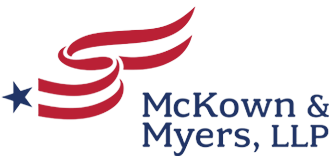 The Veterans Administration (VA) is expected to implement significant changes to its disability rating criteria for sleep disorders, including sleep apnea, insomnia, and narcolepsy, in April 2025. These proposed changes have raised concerns among veterans and their advocates, as they could potentially lead to lower disability ratings for some individuals.
The Veterans Administration (VA) is expected to implement significant changes to its disability rating criteria for sleep disorders, including sleep apnea, insomnia, and narcolepsy, in April 2025. These proposed changes have raised concerns among veterans and their advocates, as they could potentially lead to lower disability ratings for some individuals.
Sleeping Disorder: Sleep Apnea
With sleep apnea affecting a significant number of veterans, the impending changes in April 2025 will have a profound impact on this specific disorder, potentially altering the disability ratings for many veterans.
Currently, veterans who successfully use Continuous Positive Airway Pressure (CPAP) therapy are often granted a 50% disability rating. However, under the proposed changes, the VA is expected to reduce its ratings for CPAP users significantly.
The anticipated changes are as follows:
- Reduced Ratings for CPAP Users: For veterans who effectively use CPAP therapy, the VA is expected to reduce the disability rating to as low as 10%. This reduction assumes that CPAP therapy effectively treats sleep apnea and mitigates its impact on daily life.
- Elimination of 30% Rating: Under the proposed changes, the current 30% disability rating for sleep apnea is also anticipated to be eliminated, a significant shift that veterans must be aware of.
- Focus on Comorbidities: However, the VA may increase the disability rating for veterans with sleep apnea who also experience significant complications or comorbidities. Under this proposed change, a veteran with severe sleep apnea that significantly interferes with their ability to use CPAP therapy due to other medical conditions (such as severe anxiety, cognitive impairment, or severe respiratory issues) may still be eligible for a 50% disability rating instead of the anticipated reduced or eliminated disability rating.
Other Sleeping Disorders: Insomnia and Narcolepsy
It is important to note that the upcoming changes this April 2025 will affect other sleep disorders besides sleep apnea. The VA is anticipated to revise its rating criteria for these disorders, including insomnia and narcolepsy.
- Insomnia: Insomnia is a condition characterized by difficulty falling asleep, staying asleep, or waking up too early and not being able to return to sleep. This sleep disorder can negatively affect overall health, including fatigue, mood disturbances, and impaired functionality during the day. The VA is expected to adjust the criteria for determining the severity of insomnia and its impact on daily functioning.
- Narcolepsy: Narcolepsy is a sleep disorder characterized by excessive daytime sleepiness and sudden sleep attacks.The VA is considering changes to the disability rating criteria for narcolepsy, which would affect the level of disability benefits received by veterans with this condition.
The anticipated VA disability benefit changes coming this April 2025 would have a significant effect on a great number of veterans suffering from various sleeping disorders. These veterans’ disability assistance, which could serve as a lifeline for a lot of them, could be severely reduced and thus affect their daily lives. To ensure that their rights are protected and that the benefits that they are rightly entitled to are credited, veterans should consider the following tips:
- Stay Informed: Veterans are encouraged to stay informed and keep abreast of the latest developments regarding these proposed changes to VA disability ratings. This knowledge will empower them to make informed decisions about their benefits.
- Prepare and Gather Medical Evidence: Medical evidence plays a significant role in VA claims. To help support any anticipated changes in the VA’s requirements, veterans should ensure that they have all necessary medical records, including, but not limited to, sleep studies, treatment records, and diagnoses, at hand to support their claims or any appeals that may be directly caused by the upcoming changes in VA disability ratings this April 2025.
- Seek Sound Legal Guidance: More importantly, seeking legal guidance from a qualified attorney specializing in VA benefits matters may help a veteran understand the impact of these changes and provide sound legal advice on how and what to do.
If you or a loved one suffer from sleep apnea, you can count on us to assist you in filing your claim. At McKown and Myers, it’s our job to help Hoosiers like you get the compensation they need to get medical treatment and support their families. We’re here to answer your questions about your application – call 765-668-7531 or complete our contact form here. There’s no obligation – we’re here to help.
